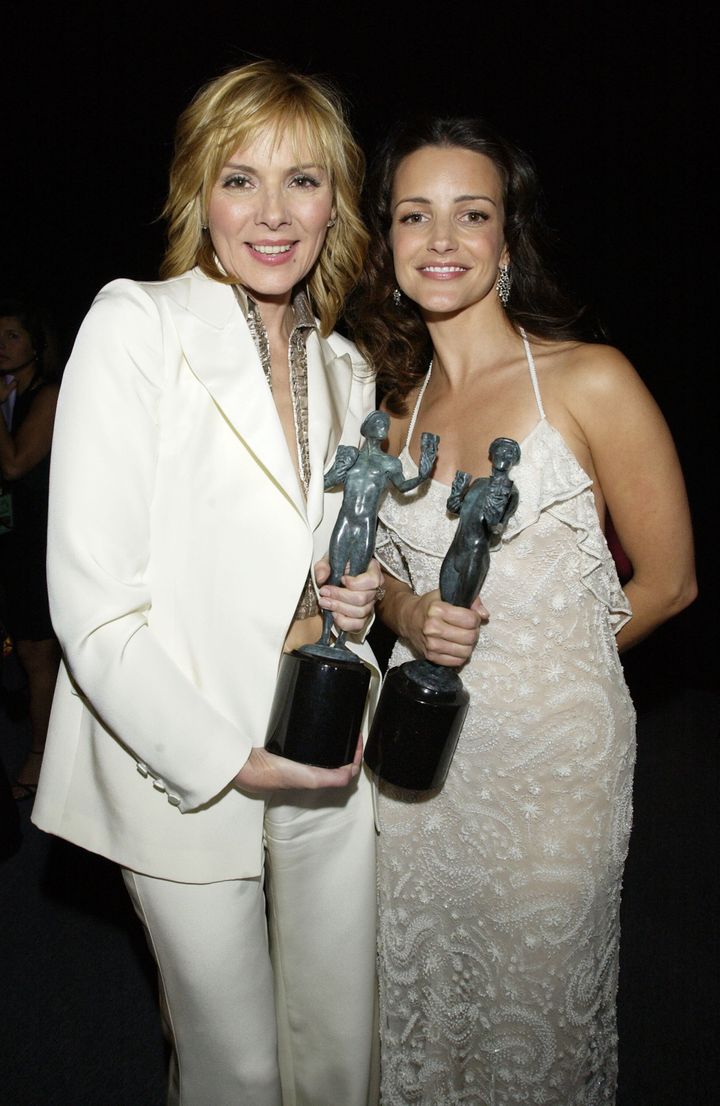
Kim Cattrall’s decision to reprise the role of Samantha Jones on “And Just Like That,” Max’s “Sex and the City” revival series, has drawn an outpouring of support ― as well as some dissenting views ― from longtime fans of the franchise.
One person who won’t be chiming in on that discourse, however, is Cattrall’s former “SATC” co-star, Kristin Davis.
In an interview with The Telegraph published last week, Davis was asked if any members of the “And Just Like That” cast had been in touch with Cattrall.
Her answer, though brief and indirect, was illuminating.
“You have to respect people’s wishes,” said the actor, who plays Charlotte York-Goldenblatt. “I’m not gonna waste energy on it. I can’t change anybody.”
She went on to note: “I do understand fans’ feelings — that they’re upset … I wish I could fix it, but I can’t. It’s not in my power.”

In a bombshell turn of events, Variety reported earlier this month that Cattrall would make a cameo appearance as Samantha on the Season 2 finale of “And Just Like That,” set to air in August. Though details are scarce, the scene is believed to be a phone conversation between Samantha and Carrie Bradshaw, played by Sarah Jessica Parker.
According to the New York Post’s Page Six, the scene was filmed in the interior of a town car in a New York parking garage and did not require Cattrall to interact with showrunner Michael Patrick King or any of her former co-stars.
Though Cattrall played Samantha to great acclaim on all six seasons of “Sex and the City” as well as in two feature films, she’d repeatedly vowed never to return to the franchise amid reports of a behind-the-scenes feud between her and Parker.
Among those excited by the news of Cattrall’s return is author Candace Bushnell, who wrote the original “Sex and the City” column for the New York Observer, which became the 1996 book anthology on which the original HBO series was based.
Speaking to Variety last week, Bushnell acknowledged that Cattrall’s cameo was very much “a business decision, as these things always are.” Still, she added: “Her character represented a lot of freedom and permission for women.”
